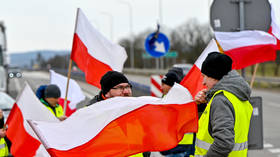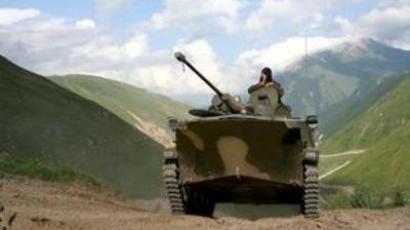Russia and Belarus boost defensive cooperation
Russia and Belarus have wrapped up the final day of joint military exercises that began on September 18. Presidents Dmitry Medvedev and Aleksandr Lukashenko have agreed to hold similar exercises every two years.
At the closing ceremony, Medvedev said the exercises underlined the cooperation between the two countries.
“These exercises show that our partner relations are growing stronger,” Medvedev said.
He also stressed the defensive nature of the war games, which according to Medvedev were “in line with the international law.”
Known as “Zapad 2009” (or “West 2009”), the war games became the largest in which Russian forces have participated in the past 30 years.
Almost 14,000 troops took part in the exercises from both Russia and Belarus, along with a record number of military machines: more than 200 tanks, over a 100 jets and helicopters, and almost 500 armored fighting vehicles.
The location for these war games was Belarus, some 200 kilometers from the country's border with NATO members Poland, Lithuania and Latvia.
In Russia, the maneuvers were held in the country's most western region, Kaliningrad, which is also surrounded by NATO-member states.
“If you look at the states bordering Belarus, you understand we are talking about the NATO troops,” said political analyst Vladimir Evseev said. “But such a view is not correct, as Russia has been building a partnership with NATO. Thus it would probably be wrong to view NATO as the reason for these military exercises.”
The scenario is a well-armed enemy attacking Belarus with its air force and artillery. The two countries have stressed the event has a defensive focus only. The exercise tested the Russian-Belarusian integrated air-defense system, which they agreed to establish in February.
These exercises are part of a series Russia has recently conducted along its frontiers: in the north, in the Caucasus and on the Russian-Chinese border. West 2009, like the others, is aimed at testing Russia’s army, which is undergoing a massive reorganization at the moment.













